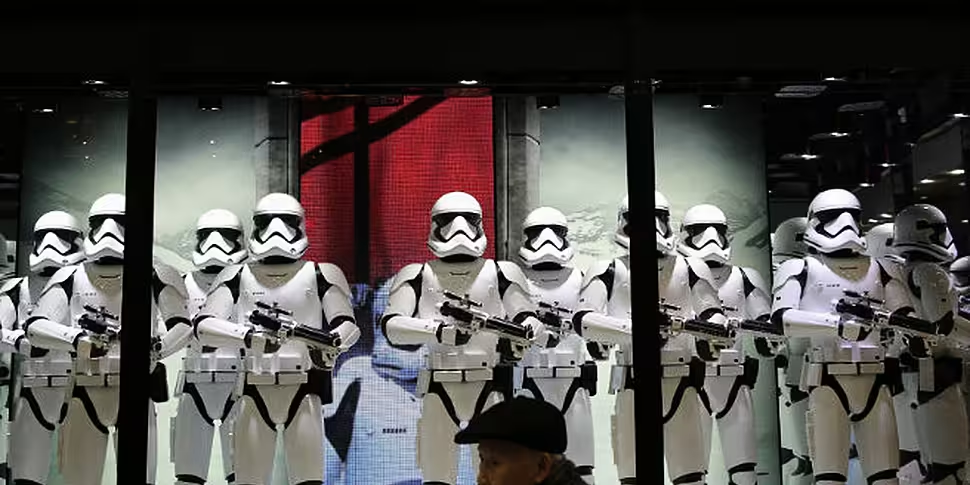When Disney bought Lucasfilm and the Star Wars franchise from George Lucas in 2012 it said that it believed that "substantial pent-up demand" had built up for a continuation of the series beyond the almost universally-panned second trilogy. Over the coming days, weeks and years the company is likely to be proved right.
That deal was worth $4.05bn, Star Wars: The Force Awakens, is on course to make €4.5bn through merchandise sales alone. This is on top of an additional €2bn taking that is expected at the box office, earnings of €1.1bn forecast through the release of two video games, €400m from the sale of DVD's and downloads and a further €400m in TV licensing.
The Disney Corporation is clearly keeping close tabs on its prize asset - an event screening the original three films in the Grand Social venue in central Dublin was forced to cancel the night after running into rights issues with the company.
"Unfortunately Disney have issued a no show for all Star Wars Movies, and though we and the peeps at the Grand Social have been in negotiation with the motion picture licensing authority for over a week (and even agreed to pay additional licensing fees) it was to no avail. As such we are unable to show the films at this time," the organisers said in a Facebook post.
The beauty of the property is the scope that it gives Disney to work with, offering a whole galaxy for its creatives (and merchandisers) to draw from.
Disney plans to pump-out annual Star Wars titles until demand wanes, with anthological spin-off stories from the galaxy filling the gaps between the main Episodes in the three film cycle.
The first of which Rogue One is due in 2016 and is based on one line from the opening 'crawl' of the original 1977 Star Wars' introduction, "Rebel spies managed to steal secret plans to the Empire’s ultimate weapon, the DEATH STAR."
The film will tell the story of those "rebel spies," whoever they turn out to be.
Across film releases, TV, toys and video games if Disney can manage the property successfully and create smart and meaningful content without allowing 'franchise fatigue' to set in - the earning potential is almost as endless as the boundary-less universe which George Lucas created in the late 1970s.
A recent Wired article proclaimed that we "won't live to see the final Star Wars movie," it continued to say that the series will follow the blueprint that Disney designed managing Marvel comic properties into interlinking, cross-media cycles - arguing that the rolling out of Lucas titles will "industrialise" the prototype that Marvel developed.









